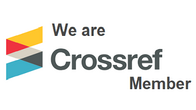Penilaian Mahasiswa BIPA terhadap Pembelajaran Tatap Muka dan Online
Abstract
The transition of face-to-face learning to online in a short time due to the Covid-19 pandemic is certainly not easy, both for teachers and for students. In this regard, the purpose of this paper is to explain 1) an overview of BIPA learning before and at the beginning of Covid-19; 2) learners' assessment of the ease, constraints of online learning, and their comparison with face-to-face; 3) learners' written opinion regarding online and face-to-face learning. This research is a qualitative descriptive design. Data were collected through observation and questionnaires. As a result, the form of face-to-face assignments consists of individuals, groups, and fields, whereas online is only individual assignments; the learning material is the same: grammar, 4 language skills, culture; PPSX, WA, e-mail learning tools. Learners experience problems in online learning. The learner has written advice in interactive learning and the use of English. Face-to-face learning is better than online learning.
Keywords
Full Text:
PDF (Bahasa Indonesia)References
Afdila, I., Apriliana, M., Octavia, R. D., & Cahyati4, R. (2020). Pendekatan budaya dalam webinar pengajaran BIPA (Bahasa Indonesia Bagi Penutur Asing). In Kumpulan Artikel Pengabdian KKN BMC UNNES 2020. UNNES. file:///E:/artikel BIPA online/pengabdian unes.pdf
Atmojo, A. E. P., & Nugroho, A. (2020). EFL Classes Must Go Online! Teaching Activities and Challenges during COVID-19 Pandemic in Indonesia. Register Journal, 13(1), 49–76. https://doi.org/10.18326/rgt.v13i1.49-76
Diani, W. R., & Dewi, L. S. (2020). Tantangan guru BIPA menghadapi pembelajaran daring di masa pandemi Covid-19. Transformatika: Jurnal Bahasa, Sastra, Dan Pengajarannya, 4(2), 1–15. https://doi.org/10.31002/transformatika.v%vi%i.3179
Febriani, S. R. (2020). Implementation of Arabic Learning During COVID-19 Emergency in Indonesia: HOTS, MOTS, or LOTS? Alsinatuna : Journal of Arabic Linguistics and Education, 5(2), 117–129.
Gultom, E. (2016). Proceedings of the 4th International Seminar on English Language & Teaching (ISELT). Assessment and Evaluation in EFLTeaching, 190–198.
Hastowahadi; Setyaningrum, R. W., & Pangesti, F. (2020). Pembelajaran Jarak Jauh Darurat COVID-19 : Cerita Mahasiswa Internasional di Kelas Bahasa Indonesia untuk Penutur Asing ( BIPA ). Journal of International Students, 10(S3), 180–197. https://www.ojed.org/index.php/jis/article/view/3206
König, J., Jäger-Biela, D. J., & Glutsch, N. (2020). Adapting to online teaching during COVID-19 school closure: teacher education and teacher competence effects among early career teachers in Germany. European Journal of Teacher Education, 43(4), 608–622. https://doi.org/10.1080/02619768.2020.1809650
Maican, M.-A., & Cocoradă, E. (2021). Online Foreign Language Learning in Higher Education and Its Correlates during the COVID-19 Pandemic. Sustainability, 13(2), 781. https://doi.org/10.3390/su13020781
Marlini, S. (2020). Zoom for BIPA Online Learning during COVID-19 Pandemic. Proceeding of 1st International Conference on The Teaching of English and Literature, 1(1), 46–50. https://ejournal.karinosseff.org/index.php/icotel/article/view/64/56
Mulyani, Fidyati, Suryani, Suri, M., & Halimatussakdiah. (2021). University students’ perceptions through e-learning implementation during covid-19 pandemic: Positive or negative features dominate? Studies in English Language and Education, 8(1), 197–211. https://doi.org/10.24815/siele.v8i1.17628
Muzdalifa, & Herningtias, E. (2021). Online Learning Platforms for Teaching Indonesian to Foreign Speakers. ISOLEC: International Seminar on Language, Education, and Culture, 228–234. https://doi.org/10.18502/kss.v5i3.8543
Nartiningrum, N., & Nugroho, A. (2020). Online Learning amidst Global Pandemic: EFL Students’ Challenges, Suggestions, and Needed Materials. ENGLISH FRANCA : Academic Journal of English Language and Education, 4(2), 115. https://doi.org/10.29240/ef.v4i2.1494
Rapanta, C., Botturi, L., Goodyear, P., Guàrdia, L., & Koole, M. (2020). Online University Teaching During and After the Covid-19 Crisis: Refocusing Teacher Presence and Learning Activity. Postdigital Science and Education, 2(3), 923–945. https://doi.org/10.1007/s42438-020-00155-y
Saddhono, K. (2012). Kajian Sosiolinguistik Pemakai Bahasa Mahasiswa Asing Dalam Pembelajaran Bahasa Indonesia Untuk Penutur Asing (BIPA). Kajian Linguistik Dan Sastra, 24(2), 176–186. http://journals.ums.ac.id/index.php/KLS/article/view/96/92
Smaldino, S. E., Lowther, D. L., & Russell, J. D. (2008). Instructional Technology and Media for Learning (9th Editio). Pearson. https://www.pearson.com/us/higher-education/program/Smaldino-Instructional-Technology-and-Media-for-Learning-9th-Edition/PGM268781.html
Sobara, I. (2020). Pembelajaran BIPA di RBI Berlin pada masa pandemi Covid-19: Peluang dan tantangan. In H. Setyowati, O. R. Mardasari, A. E. F. Putri, K. F. L. Sakti, L. U. Muyassaroh, & Sunarti (Eds.), Seminar Nasional Pembelajaran Bahasa dan Sastra (SELASAR) 4 (pp. 120–130). Fakultas Sastra Universitas Negeri Malang. http://jerman.sastra.um.ac.id/selasar/index.php/proceedings/
Susanto, G., Suparmi, S., & Rahayu, E. Y. (2020). The Emotional Geography of International Students in Online Bahasa Indonesia Learning during the COVID-19 Pandemic Geografi Emosi Mahasiswa Internasional dalam Belajar Bahasa Indonesia secara Daring pada Masa COVID-19. Journal of International Students, 10(S3), 161–179.
Suyitno, I. (2007). Pengembangan Bahan Ajar Bahasa Indonesia untuk Penutur Asing (BIPA) berdasarkan Hasil Analisis Kebutuhan Belajar. Wacana, Journal of the Humanities of Indonesia, 9(1), 62. https://doi.org/10.17510/wjhi.v9i1.223
Widianto, E., & Zulaeha, I. (2016). Pilihan Bahasa dalam Interaksi Pembelajaran Bahasa Indonesia bagi Penutur Asing. Seloka: Jurnal Pendidikan Bahasa Dan Sastra Indonesia, 5(2), 124–135.
DOI: https://doi.org/10.26499/jbipa.v3i1.3482
Refbacks
- There are currently no refbacks.
Publisher:
Badan Pengembangan dan Pembinaan Bahasa, Kementerian Pendidikan dan Kebudayaan Republik Indonesia
Address: Jl. Daksinapati Barat 4 No.11, RT.11/RW.14, Rawamangun, Kec. Pulo Gadung, Kota Jakarta Timur, Daerah Khusus Ibukota Jakarta 13220 Phone: +62 (021) 4896558

Jurnal Bahasa Indonesia bagi Penutur Asing (JBIPA) is licensed under a Creative Commons Attribution-NonCommercial 4.0 International License.
View My Stats -->





